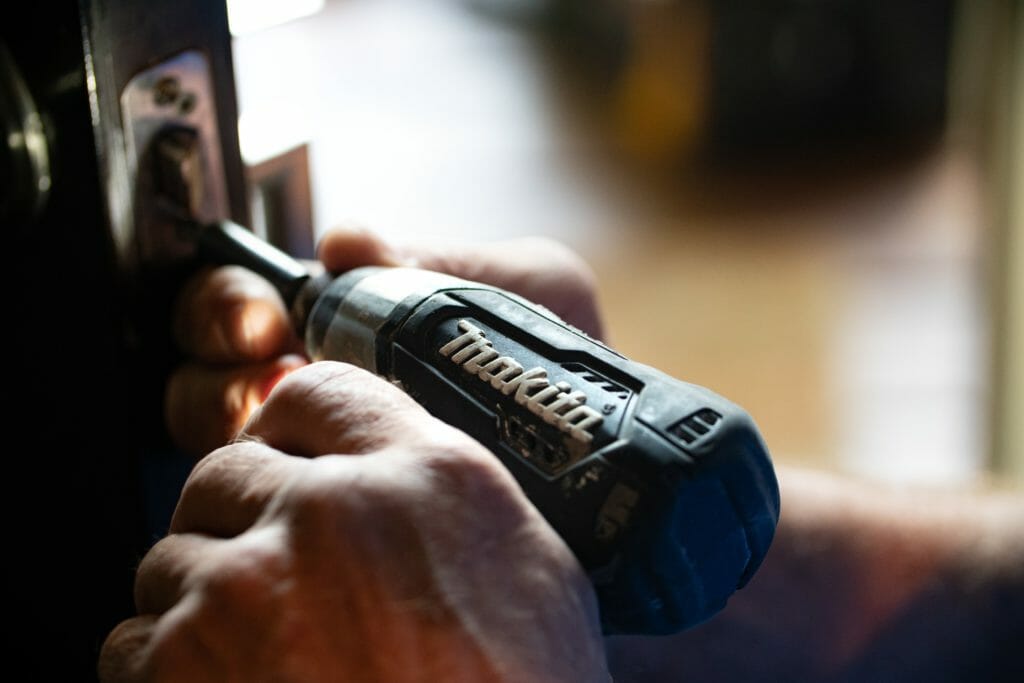When a dishwasher breaks, or a leak is discovered, condo corporations and HOAs usually have to figure out who should be responsible for making the repair. If the property is rented, then the landlord or owner is generally responsible for fixing the problem. If a resident has purchased the home, then they are likely responsible for handling repairs.
But, residential communities are facing a new problem as a result of COVID-19: Should the repair be done at all?
Click here to download our maintenance log template
The obligation to care for your property
We’re all doing our best to slow the spread of the coronavirus. Condos and HOAs have been working very hard to comply with new and evolving laws, and are doing their part to limit in-person interactions as much as possible. However, these properties still have an obligation to protect assets of the association, and a fiduciary duty to maintain standards of care. In other words, if there is a critical problem in a home or within a building, management cannot ignore it.
Essential services must be carried out, not only to protect the health and safety of residents, but to maintain the value and functionality of the property as well. The definition of an essential service will vary depending on where you live, so it is important to check with state or provincial laws regularly as rules and guidelines are changing often.
That being said, most places do consider these services to be essential:
- property management services
- plumbers
- electricians custodial/janitorial workers
- cleaning services
- security services
- repair technicians and engineers
- mechanics (HVAC and elevator technicians)
- other service providers who provide similar services
Non-essential amenities should be closed to residents, but mailrooms, laundry rooms, and elevators are expected to remain open as they are essential.
Managing service requests
Due to the important physical distancing precautions, all owners and residents should be encouraged to stop inviting visitors onto the property, and that includes contractors. The presence of unnecessary visitors on the property exposes the community to undue risk. However, there may be some extenuating circumstances that require repair work to be done.
Residents need to have a reliable system in place to make urgent service requests. An online system such as email, a resident portal, or property management software may be the best solution because it allows requests to be sent and received electronically. No in-person conversations required.
Our Service Requests feature enables management to oversee all requests from one place. Residents who need help can fill out a request, indicate if the problem is urgent, and even upload images to accompany their request description to help management understand what they need help with. If their problem is indeed urgent, management can schedule an emergency repair.
In order to minimize non-essential service requests, share the current service request rules and procedures with your residents. Explain why non-essential requests are not being processed right now, and let residents know how they can get help if they do have an urgent repair issue. Post a notice on any physical display boards on the property, and send electronic notifications as well. The more your residents know right now, the more likely they are to follow your instructions.
Deciding which requests are urgent
Deciding which repairs are urgent and which ones should wait can be a bit of a challenge. Residents may become angry if a request that they feel is urgent, is put on hold. However, management must make informed decisions that minimize liability, harm and risk. Boards do have the authority to regulate and deny requests for non-urgent repairs and renovations.
As stated before, all non-essential work (both in homes and on common elements) should be postponed. Non-urgent work may include some types of landscaping, window washing, filling in minor cracks, and repairing a broken fan. However, if the issue is jeopardizing the safety, sanitation, or security of the resident, or if the problem will create significant damage to the property if it is not fixed right away, then a repair should be ordered.
Some examples of emergency maintenance requests include:
- flooding
- power loss
- water loss
- damage to a window
- structural damage
Ongoing repairs
Use discretion when making decisions about ongoing repairs and renovations. If the work is not essential, then residents are advised to put a stop to the repairs. Management can be stricter when it comes to ongoing construction noise. They can advise owners that construction noise must be kept to a minimum because so many residents are working from home. Corporations do have the ability to regulate and suspend non-urgent work, but try to work with residents to find a solution before taking any legal action.
Responding to service requests
If a repair is deemed essential and you are responsible for overseeing the repair, use a form of digital communication to schedule a time with the resident for the repair professional to enter the unit. If the resident is experiencing symptoms of COVID-19, this information should be shared with the maintenance worker so that they can take proper steps to protect themselves.
Make sure you have collected as much information as possible from the resident to share with the repair professional. The last thing you want to do is schedule another repair because the maintenance worker didn’t have the equipment they needed on the first visit.
The repair professional should have their own protective equipment with them. You can advise the resident to wear protective gear while the repair is being done.
If the landlord who lives and/or works on site is doing the repair, they should be wearing personal protective equipment before entering the unit. They should avoid touching their face while carrying out the repair, and wash their hands thoroughly after they have exited the home.
After the repair has been completed, owners can disinfect the area where the repair took place, and any handles or light switches that were touched by the repair professional. Everyone should take the necessary precautions to keep themselves, and others, healthy.
Seek legal advice if you’re not sure about the necessity of a repair
Corporations and HOAs are advised to speak with a lawyer if they are uncertain about how necessary a specific repair is. It can be hard to find a balance between keeping your community safe, and keeping individual residents happy. A lawyer can provide clear answers to difficult questions.
Conclusion
Condos and HOAs must continue to maintain essential operations during COVID-19. Though this pandemic has limited our day-to-day interactions and activities, associations must find alternative ways to work together and help each other. Keep residents informed, and stay connected. Share new information with them as soon as it becomes available.
There will be situations where emergency repairs will need to be done in homes. Use an online system to collect and manage requests. Make it clear to residents that only emergency repairs will be made during this time, and discourage residents from continuing with non-essential renovations that were started before the coronavirus outbreak. This is temporary, and the better we are at limiting social interactions now, the sooner we’ll be able to return to a more normal way of living.
Download Template
Download our free maintenance log template



